This article was co-authored by David Nazarian, MD. Dr. David Nazarian is a board certified Internal Medicine Physician and the Owner of My Concierge MD, a medical practice in Beverly Hills California, specializing in concierge medicine, executive health and integrative medicine. Dr. Nazarian specializes in comprehensive physical examinations, IV Vitamin therapies, hormone replacement therapy, weight loss, platelet rich plasma therapies. He has over 16 years of medical training and facilitation and is a Diplomate of the American Board of Internal Medicine. He completed his B.S. in Psychology and Biology from the University of California, Los Angeles, his M.D. from the Sackler School of Medicine, and a residency at Huntington Memorial Hospital, an affiliate of the University of Southern California.
There are 11 references cited in this article, which can be found at the bottom of the page.
This article has been viewed 390,765 times.
Maybe you have a big social event this weekend or an important meeting at work in a few days. Or perhaps you're just miserable and ready to kick your cold. Having a cold makes you tired, weak, and irritable. Colds are common and we all suffer from them, especially in the winter. Unfortunately, colds often just need to run their course. It usually takes about seven to 10 days to get rid of a cold. However, there are many steps you can take to ease your symptoms and feel better in two days. You can also take steps to prevent future colds.
Steps
Trying Effective Home Remedies
-
1Stay hydrated. Drinking plenty of fluids will help keep you hydrated and reduce your cold symptoms.[1] At the first sign of a stuffy nose, start drinking lots of water. Increase your usual intake to help keep your throat from becoming sore.
- Green tea is particularly helpful when you have a cold. It is full of antioxidants that help your body ward off infections.
- The more fluids, the better. Becoming dehydrated would only worsen your cold.
-
2Stay rested. One of the worst parts of having a cold is that you will likely feel worn out. Don't try to push yourself too hard. One of the best ways to beat your cold is to get plenty of rest so your body can focus its energy on fighting your cold.[2] Try to go to bed earlier than normal.[3]
- You should typically try to get seven or eight hours of sleep per night. When you're not feeling well, aim for an extra hour or two. The rest will help your body to heal.
Advertisement -
3Eat the right foods. Your mom gave good advice: chicken soup can actually help ease your cold symptoms and help you feel better faster. Scientists are still conducting research, but several studies have shown that chicken soup reduces the spread of mucus, and in that way, reduces your upper-respiratory cold symptoms. Reports say that you will get the same effects from homemade and store bought soup.[4]
- Other foods have may may be helpful in easing your cold symptoms. For example, yogurt contains "good" bacteria that helps your body fight infections.[5]
- Garlic contains many immune-boosting properties. Add some to your chicken soup to get extra benefits.
- Eat ginger. It can help ease upset stomachs. This would be another great ingredient to add to your chicken soup.
-
4Use herbal remedies. Echinacea has long been used to help strengthen the immune system and treat illnesses. Recent reports indicate that taking echinacea can actually help you recover more quickly from a cold. However, echinacea, and all other herbs, can cause side effects. Talk to your doctor before taking an echinacea supplement, as it may react negatively to other medications or supplements you are taking.
- Elderberry supplements can help treat your cold symptoms. You can get this substance in either liquid or pill form. It can act as a decongestant.
- Slippery elm may reduce the discomfort caused by a sore throat. Many herbalists and physicians caution against taking this herb if you are pregnant.
-
5Get moving. If you feel up to it, you should try to get some moderate exercise. Going for a short walk outdoors before lunch can be very beneficial. Light exercise can open up your nasal passages and provide temporary relief from your cold.[6]
- Don't try to do an intense cardio workout if you are having trouble breathing due to a stuffy nose. Take it easy on yourself and go for a light to moderate workout.
- Exercise is a natural mood booster, so you will likely feel less miserable after moving around a bit.
- Do not exercise if you have a fever, have a cough, or an upset stomach, or if you feel fatigued or achey.[7]
-
6Use steam. Try taking a hot shower. Not only will it ease muscle tension, it can help reduce your nasal congestion. While you are in the shower, try gently blowing your nose one nostril at a time. You will notice that the steam helps you breathe more freely.
- If you don't have time for a shower, you can still utilize steam. Run hot water in the bathroom sink and bend over the bowl with a towel over your head. Breathe deeply to get the full benefits of the steam.
- Try adding herbs to your steam treatment. Try adding a few drops of eucalyptus oil to your bath. Some reports indicate that eucalyptus can help reduce coughing.
- Peppermint is also useful. Menthol, which can ease congestion, is the main active ingredient. You can add peppermint oil to your bath to get greater benefits from the steam.
Utilizing Medications
-
1Talk to your pharmacist. Trying to find the best over the counter cold medicine can be a frustrating experience. There are so many varieties that it can be difficult to know which is best for you, especially when your head is stuffed up. Ask your pharmacist to recommend a medication that is safe and effective.[8]
- Be very clear when describing your symptoms to the pharmacist. Make sure to let him know if you're feeling very drowsy, or if you are having trouble sleeping. You should also tell him if you have any allergies or sensitivities.
-
2Treat the right symptoms. You don't want to take too many over the counter medications. That can lead to drowsiness and potentially cause other health issues. However, you can safely take one medication when fighting your cold. Choose one that targets your worst symptoms.
- If your cold is causing you to stay awake at night coughing, look for an over the counter medication that contains dextromethorphan. This substance in one of the most effective in reducing nasal congestion.
-
3Take a painkiller. Colds come with various aches and pains and sometimes even a fever. Your muscles and joints might be sore, which just adds to your general misery. Try taking an over the counter painkiller to ease these symptoms.[9]
- Aspirin and ibuprofen are effective at helping you get over your cold. Just remember to carefully follow the dosage guidelines on the bottle.
- Use caution when giving a child aspirin, as it has been linked to Reye's syndrome. Never give aspirin to a child under the age of two. Children who have recently recovered from the chicken pox or the flu should never be given aspirin. Consult your doctor before giving any child aspirin.[10]
-
4Know when to call your doctor. If you have a basic cold, your doctor can't really do much to help you. Antibiotics have proven to be ineffective against the common cold. Save yourself a trip and don't make a doctor's appointment if you know you are suffering from a cold.[11]
- If your symptoms are persistent or especially severe, then you should call your doctor. You'll want medical advice particularly if you are having significant trouble breathing.
Preventing Future Colds
-
1Develop healthy habits. There are several steps you can take to avoid succumbing to frequent colds in the future. Try making sure that you follow some basic guidelines for living a healthy life. For example, make sure to consistently get plenty of sleep.[12]
- Eating a healthy diet full of fruits and vegetables can help build a strong immune system.[13] This will help you fight off germs.
- Try meditation. Research shows that people who meditate daily report less illnesses per year. This is likely because meditation reduces stress, which can put undue pressure on your immune system.
- Exercise frequently.[14] People who log exercise five days a week suffer from fewer respiratory illnesses, such as colds.
-
2Wash your hands. Cold and flu germs are spread very easily and can linger on almost any surface. You pick up these germs by touching everyday items such as door knobs and telephones. Wash your hands several times a day, especially during cold and flu season.[15]
- Using soap and warm water, scrub your hands for at least 20 seconds. Make sure that you dry them on a clean towel.
-
3Sanitize your surroundings. You can reduce your exposure to germs by wiping down the surfaces you contact during the day. Pay particular attention to your work space. Your co-workers are one of the most common sources of germs. Ward them off by using a sanitizing cloth to wipe down your computer, phone, and pens at the beginning and end of your day.
- You can use the same process at home. Try wiping down commonly touched surfaces such as the faucets on your bathroom sink.
Expert Q&A
-
QuestionWill antibiotics help with a cold?
 David Nazarian, MDDr. David Nazarian is a board certified Internal Medicine Physician and the Owner of My Concierge MD, a medical practice in Beverly Hills California, specializing in concierge medicine, executive health and integrative medicine. Dr. Nazarian specializes in comprehensive physical examinations, IV Vitamin therapies, hormone replacement therapy, weight loss, platelet rich plasma therapies. He has over 16 years of medical training and facilitation and is a Diplomate of the American Board of Internal Medicine. He completed his B.S. in Psychology and Biology from the University of California, Los Angeles, his M.D. from the Sackler School of Medicine, and a residency at Huntington Memorial Hospital, an affiliate of the University of Southern California.
David Nazarian, MDDr. David Nazarian is a board certified Internal Medicine Physician and the Owner of My Concierge MD, a medical practice in Beverly Hills California, specializing in concierge medicine, executive health and integrative medicine. Dr. Nazarian specializes in comprehensive physical examinations, IV Vitamin therapies, hormone replacement therapy, weight loss, platelet rich plasma therapies. He has over 16 years of medical training and facilitation and is a Diplomate of the American Board of Internal Medicine. He completed his B.S. in Psychology and Biology from the University of California, Los Angeles, his M.D. from the Sackler School of Medicine, and a residency at Huntington Memorial Hospital, an affiliate of the University of Southern California.
Diplomate, American Board of Internal Medicine Colds, in general, are caused by viruses, and antibiotics are not effective at treating viruses. Taking unnecessary antibiotics can be harmful.
Colds, in general, are caused by viruses, and antibiotics are not effective at treating viruses. Taking unnecessary antibiotics can be harmful. -
QuestionHow do I get rid of a sore throat?
 Chris M. Matsko, MDDr. Chris M. Matsko is a retired physician based in Pittsburgh, Pennsylvania. With over 25 years of medical research experience, Dr. Matsko was awarded the Pittsburgh Cornell University Leadership Award for Excellence. He holds a BS in Nutritional Science from Cornell University and an MD from the Temple University School of Medicine in 2007. Dr. Matsko earned a Research Writing Certification from the American Medical Writers Association (AMWA) in 2016 and a Medical Writing & Editing Certification from the University of Chicago in 2017.
Chris M. Matsko, MDDr. Chris M. Matsko is a retired physician based in Pittsburgh, Pennsylvania. With over 25 years of medical research experience, Dr. Matsko was awarded the Pittsburgh Cornell University Leadership Award for Excellence. He holds a BS in Nutritional Science from Cornell University and an MD from the Temple University School of Medicine in 2007. Dr. Matsko earned a Research Writing Certification from the American Medical Writers Association (AMWA) in 2016 and a Medical Writing & Editing Certification from the University of Chicago in 2017.
Family Medicine Physician You may want to use NSAIDS, throat lozenges, and throat sprays. You may want to see a doctor in order to make sure that it is not strep throat.
You may want to use NSAIDS, throat lozenges, and throat sprays. You may want to see a doctor in order to make sure that it is not strep throat. -
QuestionSince orange juice contains Vitamin C, is it okay to drink orange juice when I am sick?
 Chris M. Matsko, MDDr. Chris M. Matsko is a retired physician based in Pittsburgh, Pennsylvania. With over 25 years of medical research experience, Dr. Matsko was awarded the Pittsburgh Cornell University Leadership Award for Excellence. He holds a BS in Nutritional Science from Cornell University and an MD from the Temple University School of Medicine in 2007. Dr. Matsko earned a Research Writing Certification from the American Medical Writers Association (AMWA) in 2016 and a Medical Writing & Editing Certification from the University of Chicago in 2017.
Chris M. Matsko, MDDr. Chris M. Matsko is a retired physician based in Pittsburgh, Pennsylvania. With over 25 years of medical research experience, Dr. Matsko was awarded the Pittsburgh Cornell University Leadership Award for Excellence. He holds a BS in Nutritional Science from Cornell University and an MD from the Temple University School of Medicine in 2007. Dr. Matsko earned a Research Writing Certification from the American Medical Writers Association (AMWA) in 2016 and a Medical Writing & Editing Certification from the University of Chicago in 2017.
Family Medicine Physician Yes, orange juice is a good source of vitamin C and is a good thing to drink when you are sick.
Yes, orange juice is a good source of vitamin C and is a good thing to drink when you are sick.
Warnings
- If you are too sick to function properly at work or school, you should stay home. Working when you are really sick is really bad for you, can make your illness worse and passes it on to others. If you really need a day off, take it!⧼thumbs_response⧽
References
- ↑ David Nazarian, MD. Diplomate, American Board of Internal Medicine. Expert Interview. 26 March 2020.
- ↑ David Nazarian, MD. Diplomate, American Board of Internal Medicine. Expert Interview. 26 March 2020.
- ↑ https://www.hopkinsmedicine.org/health/wellness-and-prevention/the-dos-and-donts-of-easing-cold-symptoms
- ↑ http://www.mayoclinic.org/diseases-conditions/common-cold/in-depth/health-tip/art-20048631
- ↑ https://health.clevelandclinic.org/is-yogurt-good-for-you/
- ↑ http://www.mayoclinic.org/healthy-lifestyle/fitness/expert-answers/exercise/faq-20058494
- ↑ http://www.mayoclinic.org/healthy-lifestyle/fitness/expert-answers/exercise/faq-20058494
- ↑ https://www.pharmacytimes.com/view/supp_2003-11_743
- ↑ http://www.nhs.uk/Livewell/coldsandflu/Pages/Coldcomfort.aspx
- ↑ http://www.mayoclinic.org/diseases-conditions/reyes-syndrome/basics/definition/con-20020083
- ↑ http://familydoctor.org/familydoctor/en/diseases-conditions/colds-and-the-flu/treatment.html
- ↑ https://my.clevelandclinic.org/health/diseases/12342-common-cold
- ↑ David Nazarian, MD. Diplomate, American Board of Internal Medicine. Expert Interview. 26 March 2020.
- ↑ David Nazarian, MD. Diplomate, American Board of Internal Medicine. Expert Interview. 26 March 2020.
- ↑ http://www.nhs.uk/Livewell/coldsandflu/Pages/Preventionandcure.aspx
About This Article
If you need to get rid of a cold in 2 days, drink plenty of fluids to stay hydrated and loosen up congestion. Moderate exercise can be helpful if you feel up to it, but avoid overexerting yourself and get plenty of sleep at night so your body can heal faster. Taking hot, steamy showers or baths can thin out the mucus in your lungs, which will make it easier to cough up. You can also eat immune-boosting foods like chicken soup, garlic, and ginger to combat your symptoms and help you recover more quickly. For more tips from our medical co-author on over-the-counter medications you can try, read on!
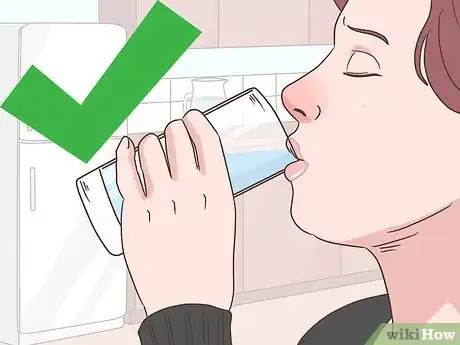

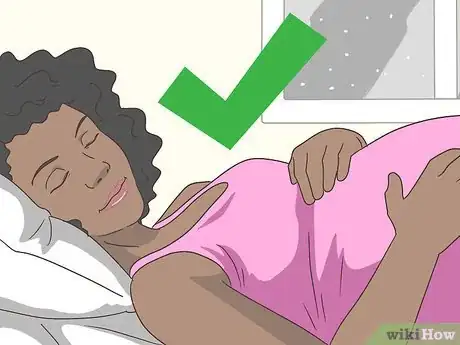
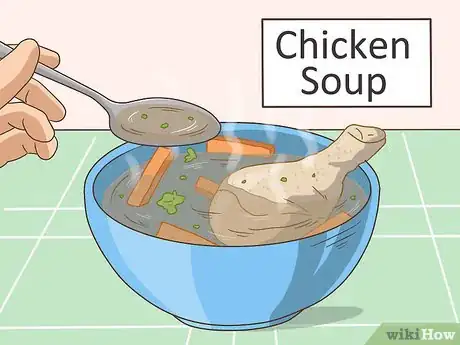

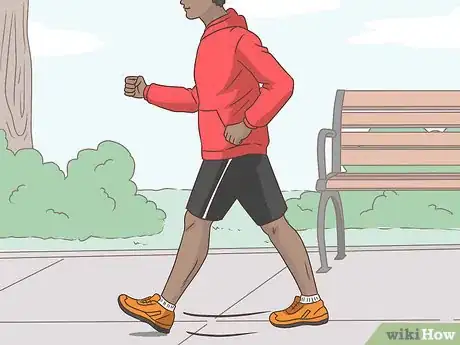
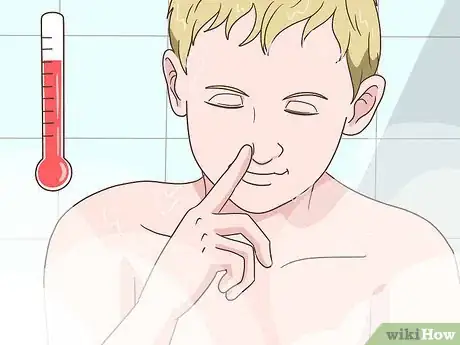
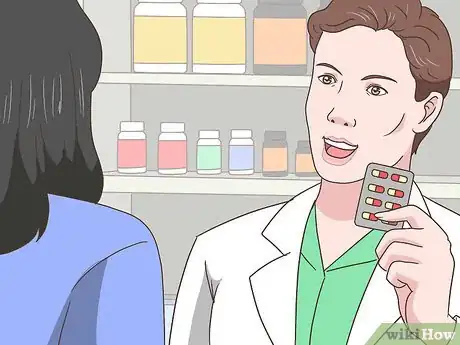
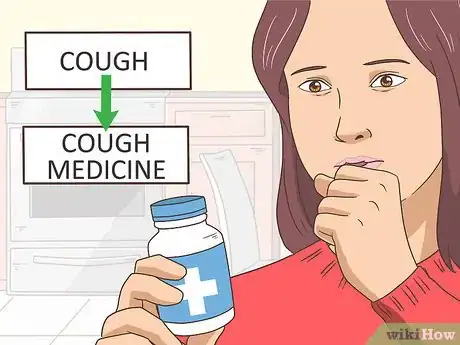
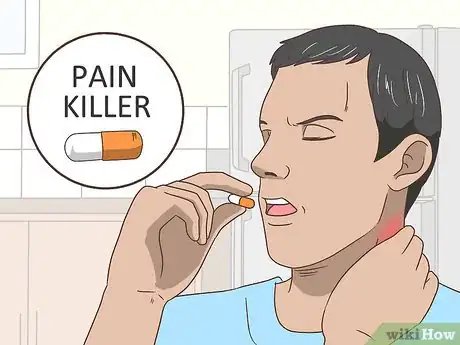
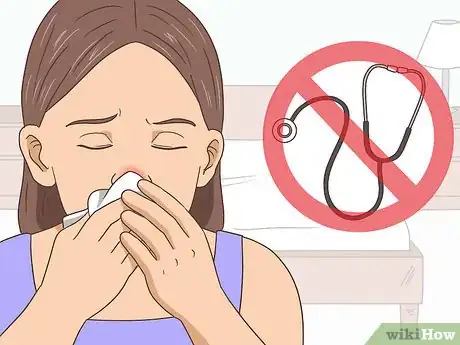
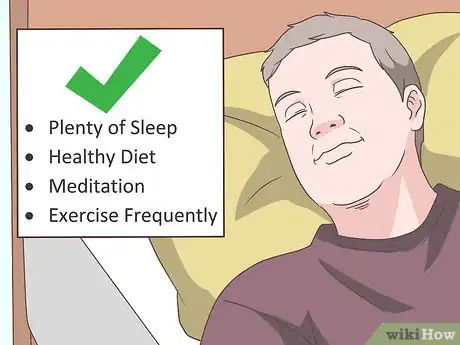
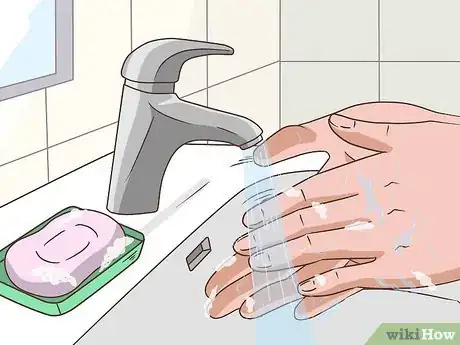
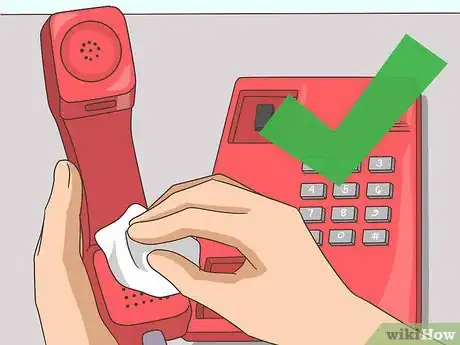

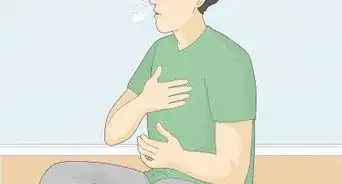
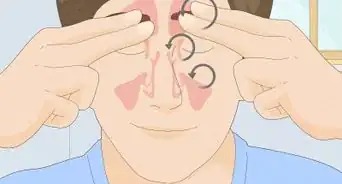







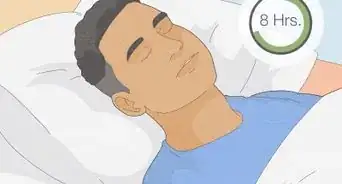
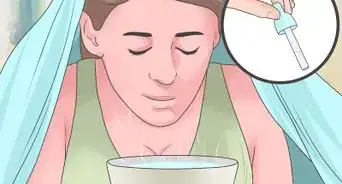

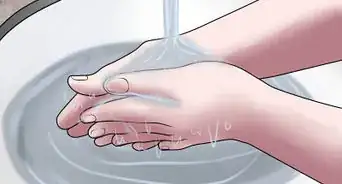










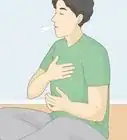
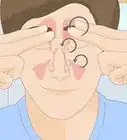




































Medical Disclaimer
The content of this article is not intended to be a substitute for professional medical advice, examination, diagnosis, or treatment. You should always contact your doctor or other qualified healthcare professional before starting, changing, or stopping any kind of health treatment.
Read More...